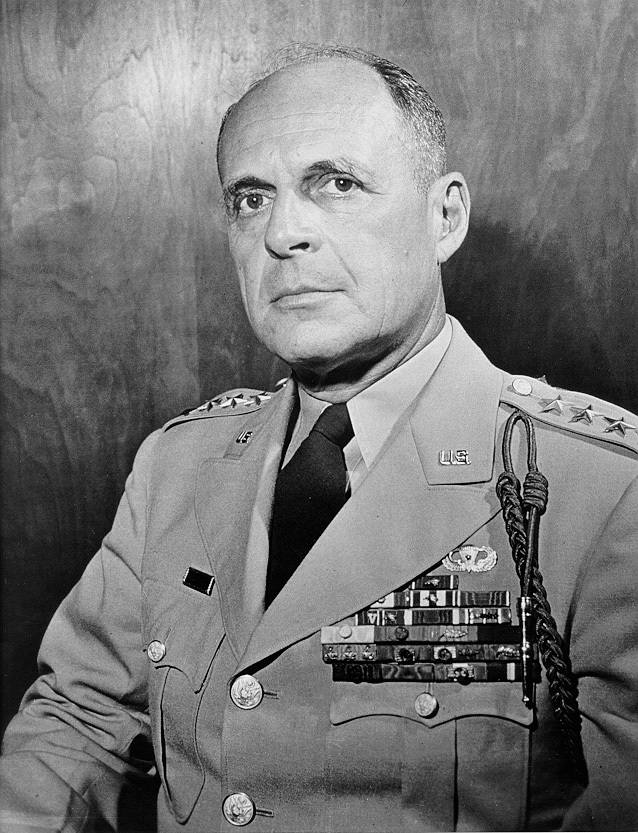Ridgway, Matthew Bunker (1895-1993), was one of the greatest combat commanders in the history of the United States Army. He gained fame for leading U.S. forces in some of the most important battles of World War II (1939-1945) and the Korean War (1950-1953).

Ridgway was born in Fort Monroe, Virginia, on March 3, 1895. He graduated from the U.S. Military Academy in 1917. He served in China, Nicaragua, the Panama Canal Zone, and the Philippines.
In World War II, Ridgway commanded the Army’s famed 82nd Airborne Division during the 1943 invasion of Sicily and the 1944 Normandy invasion. The Normandy invasion was the largest amphibious assault—that is, an attack combining land, sea, and air forces—in history. Ridgway also commanded the XVIII (18th) Airborne Corps during the Battle of the Bulge, in which Allied forces stopped a German advance. The Battle of the Bulge took place in December 1944 in the Ardennes Forest in Belgium and Luxembourg.
In December 1950, Ridgway took command of the U.S. Eighth Army in Korea. Chinese Communist forces had recently entered the war on the side of North Korea, and the U.S. Army was in retreat. Ridgway reversed the situation and fought back to the 38th Parallel, thus saving South Korea. In 1951, President Harry S. Truman selected Ridgway to replace General Douglas MacArthur as commander of U.S., United Nations, and South Korean forces. In 1952, Ridgway was promoted to full general and supreme commander of Allied forces in Europe.
From 1953 to 1955, Ridgway served as Army chief of staff under President Dwight D. Eisenhower. Ridgway’s belief in maintaining a large number of troops to limit the size of potential conflicts put him at odds with Eisenhower, who cut troop numbers and believed in relying more on the threat of using nuclear weapons to prevent a major Communist attack. Ridgway’s memoir, Soldier (1956), details his position. He died on July 26, 1993.
